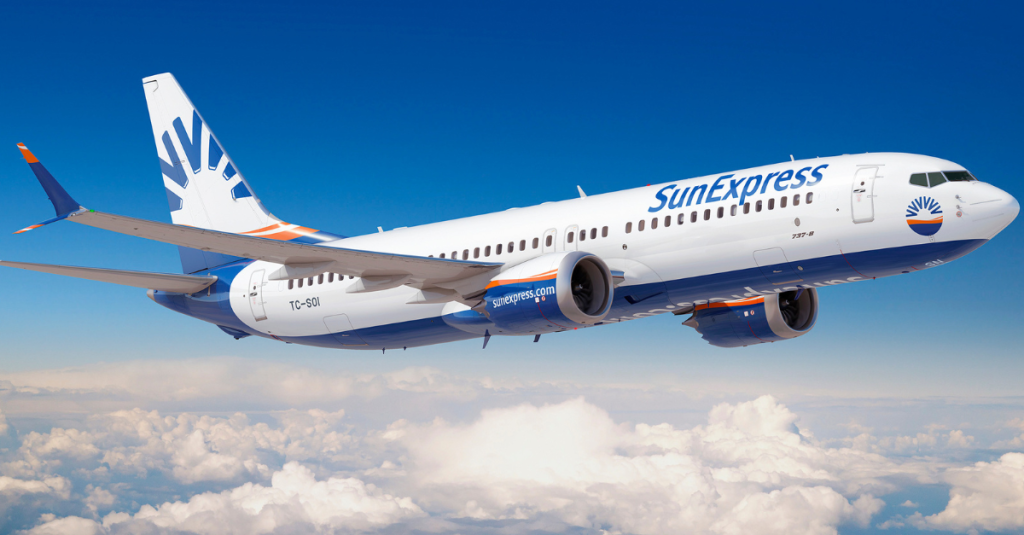SunExpress announces a substantial increase in flights and seat capacity between the UK and Turkey for summer. This move is poised to enhance connectivity and support travel agents and operators extensively.
With its roots deeply entrenched in Turkish-German collaboration, SunExpress is substantially reshaping its operations in the UK market. This development marks a significant milestone in enhancing the existing infrastructure for European travel to Turkey.
Introduction to SunExpress Expansion in the UK
In a significant move for the aviation sector, SunExpress has announced a near doubling of its UK capacity to Turkey for the upcoming summer. This strategic expansion comes as a boon to travel operators and agencies eager to facilitate more flights in and out of Turkey. The airline, which is co-owned by Lufthansa and Turkish Airlines, brings over 30 years of operational experience flying between Germany and Turkey, but its UK operations only commenced in the summer of 2022. Last year, SunExpress operated 74 weekly flights from the UK; however, this has now increased to 136, boosting its seat capacity by a remarkable 87% to reach 1.32 million.
Development of Airline Routes and Airport Operations
SunExpress has not just increased its flight numbers but also expanded its reach across more UK airports. Initially starting with Birmingham, Edinburgh, Gatwick, Luton, and Manchester, the airline added services from Bristol and Newcastle in 2023. This year sees further expansion with Leeds Bradford and Stansted joining the list. This move significantly enhances accessibility for passengers, offering 80 flights a week to Antalya, 39 to Dalaman, 15 to Izmir, and one each to Adana and Gaziantep. The expansion aligns with a strategic attempt to solidify its position as a leading leisure carrier.
Business Strategy and Market Position
SunExpress positions itself as a value carrier, distinct from low-cost airlines, reflecting its unique appeal. “We do not engage in individual deals with operators,” says Max Kownatzki, SunExpress Chief Executive. Instead, the carrier operates on a business model wherein bulk seat purchases attract bigger discounts. Kownatzki highlights that the airline’s success is derived from a combination of Turkish hospitality and German efficiency, offering a compelling proposition for travellers. Despite being partially owned by Turkish Airlines, 90% of SunExpress’s revenue is generated within the EU, predominantly in Germany, Austria, and Switzerland.
Fleet Expansion and Operational Challenges
SunExpress plans to expand its fleet significantly, expecting to operate 77 aircraft this summer, an increase of 10 from last year. The airline projects that it will carry approximately 15 million passengers across its network this year, with plans to expand to 100 aircraft by 2028 and 150 by 2035. However, challenges are present, such as the delay in Boeing aircraft deliveries following an incident involving the 737 Max-9. Despite these hurdles, Kownatzki asserts that they have secured the necessary aircraft for this year, ensuring no impact on their planned operations.
Industry Context and Economic Impact
The expansion of SunExpress’s capacity is set against a backdrop of increasing demand for travel to Turkey. The agreement with tour operators and the availability of seats on the Global Distribution System (GDS) enhances its market presence and supports operators who contribute to 40% of its UK bookings. The remaining 60% of bookings are direct, underlining the airline’s robust distribution strategy. SunExpress’s operational model not only supports direct sales but augments its position through partnerships with various travel entities.
Passenger Experience and Operational Safety
Passenger experience is at the core of SunExpress’s service offering. The airline’s decision to maintain an all-Boeing fleet underscores a commitment to consistency and safety, notwithstanding previous safety concerns with specific aircraft models. Kownatzki dismisses safety issues as a factor, asserting confidence in their current fleet. The additional flights and airport expansions are expected to enhance the overall passenger travel experience by offering more flexibility and options to travellers.
Future Outlook and Strategic Initiatives
Looking ahead, SunExpress is positioned for sustained growth, with strategic initiatives aligned with long-term aviation trends. The airline’s bold plans to increase its fleet size and passenger capacity aim to meet future demand. With a significant proportion of revenue sourced from European markets, the company is poised to leverage its strategic position to capture a larger market share over the coming years. These initiatives also reflect broader industry trends of increased connectivity and competition in the European airline market.
SunExpress’s strategic expansion in the UK strongly positions it as a key player in the leisure travel market to Turkey, demonstrating resilience and adaptability.
The planned growth in fleet and airport operations underscores SunExpress’s commitment to meeting future travel demands, ensuring its relevance and competitiveness in the European aviation industry.

